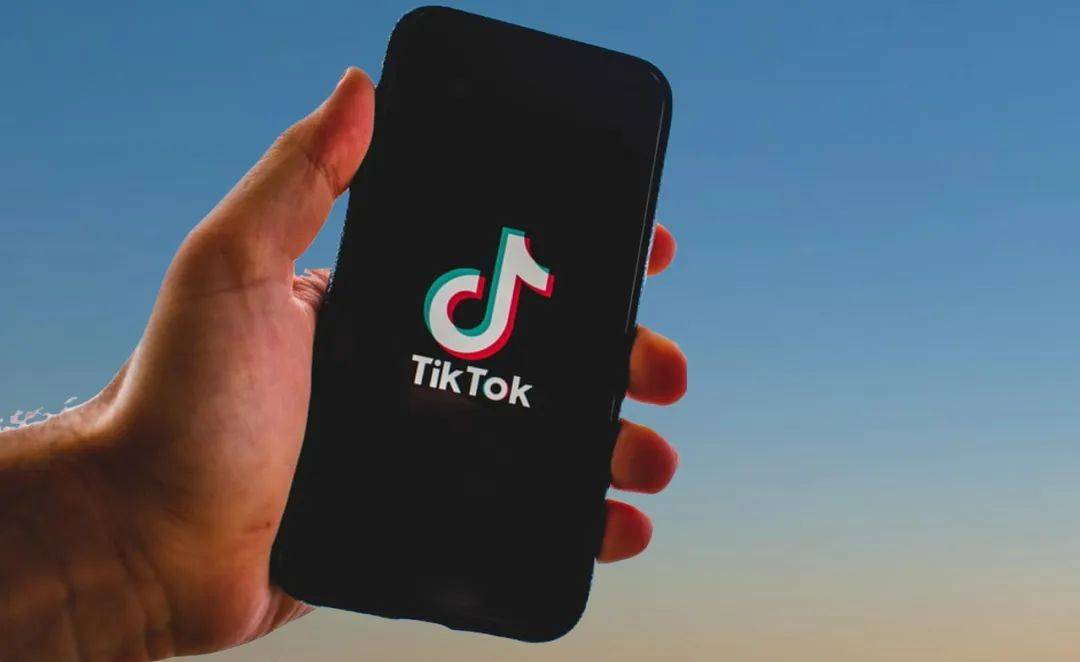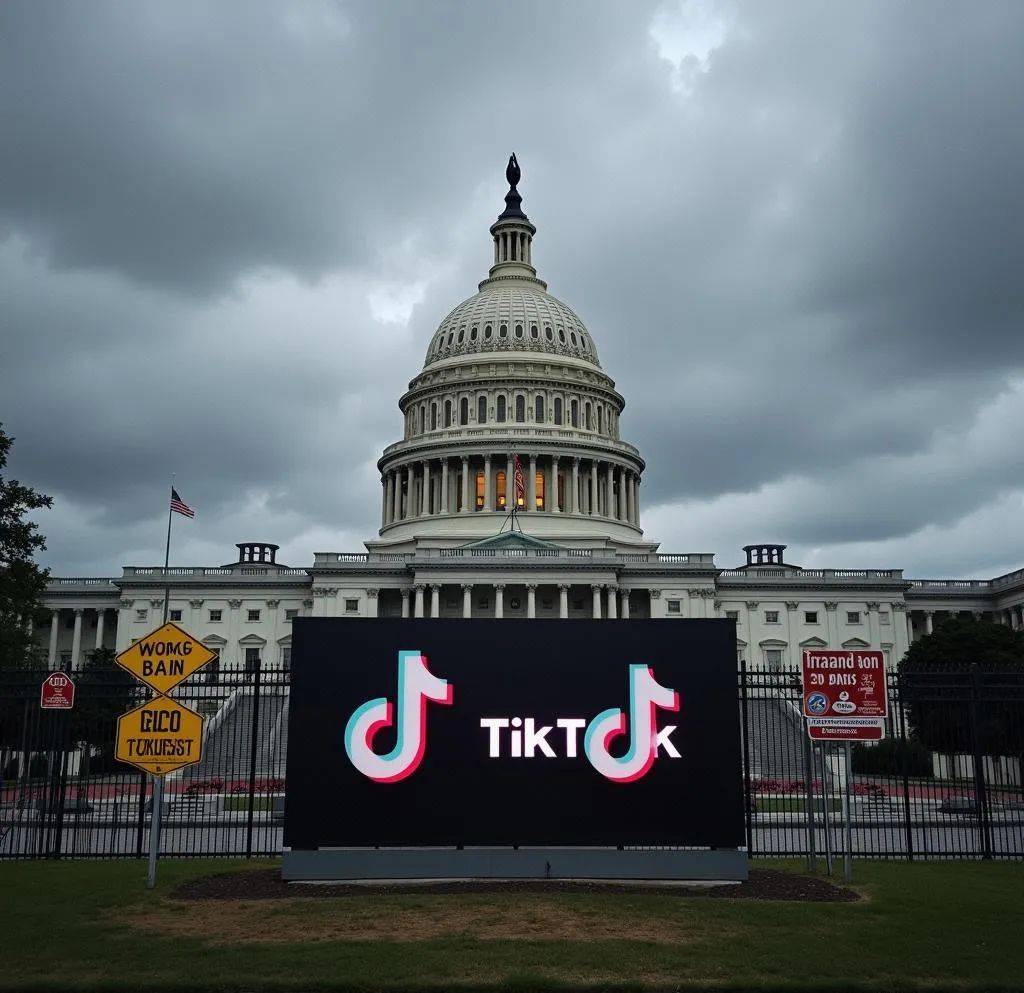Trump Signals Goodwill, Supreme Court Intervenes: TikTok Sellers Face Life-or-Death Situation
![]() 12/20 2024
12/20 2024
![]() 630
630

Amidst immense uncertainty, TikTok sellers are making diverse choices: some are frantically selling goods, some are exploring alternative paths, and others are hesitating before entering the market.
Written and interviewed by Wang Ping
Edited by Wan Tiannan
TikTok US has been receiving a string of positive developments.
Today, the US Supreme Court announced that it will expedite the hearing on the constitutionality of the US government's forced sale order for TikTok. The Court plans to debate the case on January 10 next year, but the timing of the ruling remains uncertain.
Two days earlier, on December 16, TikTok CEO Shouzi Chew was invited to meet with newly elected US President Trump.
Unlike the tough-talking Biden, Trump expressed goodwill towards TikTok, stating, "We'll look into TikTok. You know, I have a good feeling about TikTok."
Undoubtedly, the US is TikTok's most crucial single market. According to the "2024 H1 TikTok E-commerce Data Report" by marketing platform "Chaodian Youshu", TikTok's market share in the US rose from 15.4% in January to 20.8% in June, with monthly active users stabilizing at 170 million in the first half of the year.
The US government's attitude is not only pivotal for TikTok's future but also represents a turning point for entrepreneurs relying on the TikTok US region.
The previous TikTok "sell or be banned" bill required TikTok's parent company ByteDance to divest its US operations by January 19, 2025, or the app would be banned in the US.

Regarding Trump's friendly stance, Nanfeng, the founder of an MCN agency focused on the TikTok US and UK regions, remained relatively unperturbed. "January 19 next year is the most critical node, but I've always felt that TikTok won't be banned in the US, and I don't have time to discuss this ban with peers."
A few days ago, Nanfeng flew to the US to prepare for the busy Christmas sales season, saying, "We're still pushing forward with our business according to the original schedule."
According to Nanfeng, merchants in the US region who, like her, have chosen to stay with TikTok are still leveraging this uncertain "window period" to continue frantically selling goods, "Just do it and get it over with."
Unlike Nanfeng's "reluctance to believe" and relative optimism, Xiaoma, the founder of Dingkun Cross-border E-commerce Club, is somewhat pessimistic. He's been closely following the progress of the TikTok bill and has had in-depth discussions with TikTok platform merchants and cross-border e-commerce-focused venture capitalists on this matter. "My friends and I share a similar view. Although we see TikTok actively responding to the lawsuit and mediation, the outcome may not be optimistic."
As of press time, there are only 31 days left before the TikTok "sell or be banned" deadline. With Trump's stance and the intervention of the US Supreme Court, its future becomes even more unpredictable. Entrepreneurs relying on TikTok have also made vastly different choices.
"Actually, when the practitioners around me discussed the TikTok ban the most was half a year ago. Now, they are less anxious," Nanfeng told Caijing Story Hui.
In April 2024, US President Biden signed the TikTok "sell or be banned" bill passed by both houses of Congress, catching TikTok US players off guard.
In September of the previous year, TikTok officially launched its e-commerce business in the US. According to 36Kr reports, by the end of last year, TikTok's daily GMV in the US was $14 million. Additionally, FastMoss data showed that TikTok's daily GMV during Black Friday in the US that year surged to $34 million.
This aggressive growth momentum attracted a large number of merchants, service providers, and influencers to enter the market. Most of them originally planned to increase their investment in 2024, but the sudden imposition of the TikTok sale order made many merchants and entrepreneurs hesitant. "New players felt that they hadn't even started yet, and now the US government is saying that TikTok might disappear," Nanfeng said with frustration.
At that time, anxious Nanfeng and TikTok US merchants gathered to analyze the worst possible outcome, namely, "TikTok directly exiting the US market."
However, after a brief period of anxiety, they soon reached a consensus that neither cross-border e-commerce nor influencer economy would disappear with "TikTok exiting the US." They believed that there would surely be new platforms similar to TikTok to take its place. "If we can do it on platform A, we can continue to play on platform B. The market, users, and rules remain unchanged," Nanfeng told Caijing Story Hui with certainty.
Tian Ning shares a similar view. As a TikTokShop influencer, she has witnessed the rapid rise of TikTok firsthand.
Tian Ning first encountered TikTok when starting a business in India. Her company helped Chinese enterprises expand their market presence in India, and its business also involved TikTok influencer marketing.
Tian Ning stayed in India for three years. In February 2020, due to the mask incident, India announced that visas held by Chinese travelers to India were invalid, and all Chinese enterprise employees were unable to travel to India. Since then, Chinese enterprises have generally reduced their investments in India, which also disrupted the survival of Tian Ning's advertising company.
In September of the same year, India banned TikTok, and the TikTok India site, with over 200 million users, disappeared overnight and has not recovered since. India was once one of TikTok's largest markets.
Although Tian Ning's entrepreneurial journey in India was not smooth, her contact with TikTok gave her insight into the prospects of cross-border e-commerce. In July 2020, Tian Ning came to Shenzhen, the capital of cross-border e-commerce, to prepare for her new venture.
At that time, TikTok was growing rapidly, and the barriers to entry were not high. The opportunity for overtaking was clear, so Tian Ning decisively positioned herself as a live streaming influencer on TikTok. In March 2021, as TikTok ventured into e-commerce in Indonesia, Tian Ning became one of the first influencers to sell goods on the TikTok Indonesia site.
However, the overall consumption level of the Indonesian public is not high, so the profit margin for selling goods here is relatively low. In mid-July 2022, Tian Ning shifted to the TikTok US market, focusing on a pure commission-based sales model.
In September 2023, the Indonesian government banned TikTok's e-commerce business without prior notice. At the time, Tian Ning was somewhat relieved that she had shifted to the US market more than a year earlier, avoiding the Indonesian ban. However, this experience also made her realize that "as long as you are doing cross-border business, there is definitely political risk."
Having witnessed TikTok being banned in India and Indonesia, Tian Ning has become very calm and is not overly worried about the future of the TikTok US site.
"In the game between capital and the government, TikTok has the opportunity to find a way out," she said. Her optimism lies in the fact that the US, as a democratic country, has a relatively sound legal system, and there may be room for maneuver under the game of forces.
At least in Indonesia, TikTok managed to successfully turn things around. On December 11, 2023, TikTok announced a strategic e-commerce partnership with Indonesia's GoTo Group. The TikTok Indonesia site was ultimately revived, but at the cost of TikTok only existing as a social media platform in Indonesia, with all e-commerce activities such as ordering, payment, and transactions having to be completed within the Tokopedia platform owned by the GoTo Group.
Xia Lirong's calmness stems from his flexible layout that allows him to "attack when necessary and defend when needed."
Xia Lirong has been involved in cross-border e-commerce for 10 years and owns a plush toy factory. In 2019, Xia Lirong, acting as a service provider, earned a fortune by promoting goods and services on TikTok's UK market. In 2020, he also increased his investment and expanded his business to the US market. The team at his company that interfaced with TikTok peaked at over 100 people.
However, in August 2020, then-US President Trump signed an executive order requiring ByteDance to divest all its interests in the US within 90 days, which deeply impacted Xia Lirong. "I deeply reflected on my strategic mistake. I gambled a bit, putting almost all my energy into TikTok, thinking it could replicate the explosive growth path of Douyin e-commerce."
However, four years ago, TikTok narrowly escaped this political trouble. Before the 90-day deadline, ByteDance obtained a preliminary injunction against the executive order from the federal court. After Biden took office, he did not continue to enforce the executive order.
Nevertheless, the damage had already been done. Xia Lirong's company's performance on the TikTok platform shrank significantly, and he had to cut the entire TikTok team by the end of 2020.

It was not until last year that Xia Lirong's company re-entered the TikTok US market. "I believe that interest-based e-commerce on TikTok is a major trend, and there are still many opportunities in the US market. Plus, we still have our experience with TikTok."
However, this time, he was much more cautious, abandoning the aggressive service provider model and switching to a small-scale self-operated model, focusing on selling his own plush toys. The TikTok team was controlled at around eight people, and TikTok platform business accounted for less than 10% of the company's total revenue. "The investment is controllable, and we can turn around at any time," Xia Lirong is now very relaxed.
Xia Lirong also believes that TikTok will have room for maneuver. "Trump is a businessman. I think businessmen can talk to businessmen. It's all about interests."
Immediately after the 2024 Black Friday sales event, TikTok US announced its performance: On Black Friday, its overall sales in the US market exceeded $100 million, triple the sales of Black Friday 2023. The number of shoppers attracted during the two days between Black Friday and Cyber Monday increased by 165% year-on-year.
On the other hand, TikTok's US site did not meet its established GMV targets.
Bloomberg reported late last year that TikTok e-commerce set a GMV target of $50 billion for 2024, with a full-year GMV target of $17.5 billion for the US site. However, according to a 36Kr report in June this year, TikTok e-commerce's GMV target for the US site in the second half of the year was over $12 billion. The progress in the first half was not optimistic, with TikTok's full-loop GMV in the US site being less than $2 billion from January to May.
As the saying goes, 'the duck knows the water temperature first,' and top merchants were the first to feel a chill.
Gu Jun George was one of the first players to enter TikTokShop. When the TikTok storm began to sweep the globe in 2020, the keen-sensed George decisively entered the market in November of that year, founding Newme. Newme is a DTC home furnishing brand created by George, currently focusing only on the US market. Its main products include lighting, small kitchen appliances, and small bathroom appliances, priced between $30 and $100. TikTok is one of its main sales channels.
Newme has set up nearly 20 live streaming rooms in China and the US, becoming the first Chinese enterprise to try full-loop cross-border live streaming in the UK and semi-loop local live streaming in the US. Its official TikTok account, "newmeofficial," has accumulated 100,000 followers, over 1 million likes, and a monthly GMV of nearly $1 million. Its sales exceeded 100 million yuan in 2023.
After years of entrepreneurship, George judged that "although TikTok is still in its bonus period overall, the difficulty of creating hit products is becoming increasingly high. In the past, 30 to 50 pieces of content might have sufficed for a day, but now it may require producing 200 pieces of content a day to meet the predetermined GMV target." In other words, the likelihood of small sellers succeeding on TikTok is decreasing.
Currently, external entrepreneurs in the entire TikTok ecosystem are mainly divided into three categories: merchants, live streaming influencers, and MCN agencies. A report jointly completed by research institution Oxford Economics and TikTok mentioned that in 2023, TikTok's US region helped small and medium-sized merchants sell $14.7 billion worth of goods, thereby contributing $5.3 billion in taxes to the US government.
Tian Ning believes that her current entrepreneurial achievements meet her expectations. "TikTok is not a get-rich-quick business. The platform is gradually exploring the opening of its e-commerce business, and I am also step-by-step finding opportunities."
In October 2023, TikTok's US e-commerce business experienced a major surge, with GMV increasing by 17% month-on-month. Both stores and short video influencers achieved rapid growth. Many TikTok stores established their own influencer distribution networks by collaborating with influencers for product promotion.
Tian Ning, who initially positioned herself as a short video influencer, accumulated rich experience in short video shooting and live streaming due to her early entry into the TikTok US site, successfully capturing this wave of growth.
"At the beginning of the year, I predicted that competition in influencer marketing on the TikTok US site would become increasingly fierce after June, with merchants often needing to send samples to hundreds of influencers, a cost that many small merchants cannot afford."
According to Tian Ning's observations, TikTok merchants building their short video sales teams or deeply focusing on specific category MCN agencies show higher ROI than American influencers.
Despite the escalating entrepreneurial threshold on TikTok, the 2024 TikTok User Statistics Report released by TechTipsWithTea highlights that as of August 2024, its monthly active user base in the United States reached 170 million, positioning it as the world's largest cross-border e-commerce market. This lucrative opportunity is one that entrepreneurs are reluctant to relinquish easily.
"When I first heard about the TikTok bill, I was preoccupied with inventory management." Cai Ye never anticipated that TikTok might face the risk of delisting in the US.
On December 6, the US Federal Court of Appeals denied ByteDance's request to halt the enforcement of the TikTok "sell or be banned" bill, casting further uncertainty over the future of TikTok in the US.
However, with the favorable intervention of former President Trump and the US Supreme Court, the fate of TikTok in the US appears to have regained a glimmer of hope.

Currently, Cai Ye has adopted a calmer approach and is no longer consumed by this issue. "There's no point in dwelling on it. It's more productive to focus on selling goods." In March of this year, Cai Ye began expanding into the TikTokShop region, witnessing a rapid surge in weekly Gross Merchandise Volume (GMV) from $2,000 to over $20,000. This exponential growth has alleviated Cai Ye's concerns about TikTok potentially exiting the US market.






